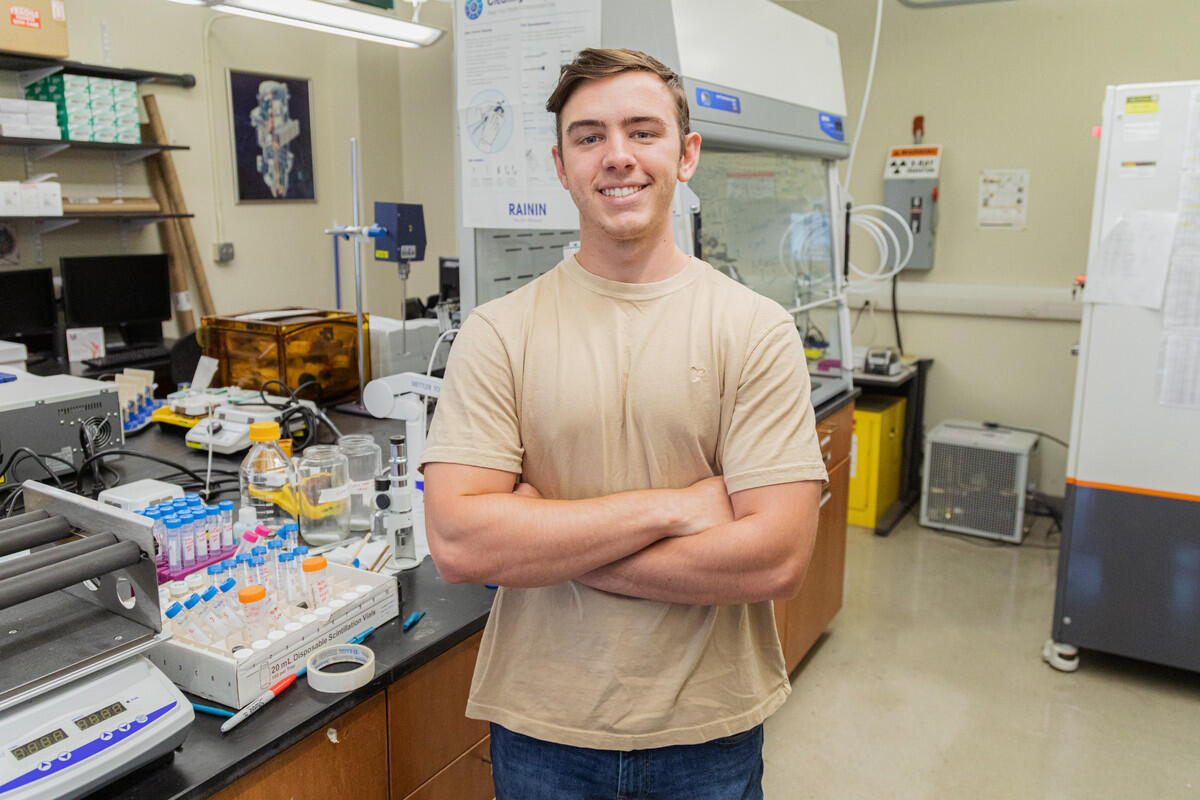
Sept. 20, 2022
Student wins award for nuclear reactor safety research
Share this story
Nuclear power is an inexpensive, environmentally friendly energy source. However, the risk of nuclear reactor accidents that could release harmful radiation is a serious concern.
“Nuclear power is very important in the green energy movement as it does not produce any greenhouse gases,” said Caleb King, a third-year student in the College of Engineering at Virginia Commonwealth University. “Making these reactors safer plays a large role in how mainstream these reactors will ultimately become.”
King is researching accident tolerant fuels — or ATFs — with Jessika Rojas, Ph.D., associate professor in the VCU Department of Mechanical and Nuclear Engineering. “[The] simple goal is to make nuclear reactors safer in the event of an accident in order to contain or stop a full reactor meltdown,” King said. “We are researching new materials that will be safer to ensure that they will work and can be used in nuclear reactors.”
King’s research in nuclear energy has earned him the 2022 Innovations in Nuclear Technology R&D Award — which included $1,000 — from the Office of Nuclear Fuel Cycle and Supply Chain, a division of the U.S. Department of Energy.
“The Innovations in Nuclear Technology R&D Award is an annual scholarship awarded to students conducting research in the nuclear field with published work in the nuclear industry,” King said. “To have won this means that I have done good work in the nuclear field and have a published paper ranked higher than many others around the country.”
In addition to awarding students for innovative nuclear-fuel-cycle-relevant research, the program supports communications among students and U.S. Department of Energy representatives.
The research of new technologies that have the potential to enhance safety at U.S. nuclear power plants was sparked by the reactor meltdown of Fukushima Daiichi in 2011. King’s paper outlined the potential gaps in the literature about near-term ATFs cladding concept as these prove their potential for rapid implementation in commercial nuclear reactors. Topics covered include application technologies and effectiveness of chromium cladding, and relevant characteristics impacting the behavior of these future cladding designs.
In a nuclear reactor, King explained, nuclear fuel flows through metal pipes. “We are testing new metal alloys to replace the current pipes that we use that have better properties, so that in the case of a nuclear accident, the fuel and the reactor are better protected from explosions, and the fuel should last longer.”
King, who has always excelled at math and science, decided to pursue engineering after taking an engineering-related class midway through high school. “VCU is one of the few good engineering schools in the area, and I really liked the atmosphere of the engineering program more than those of the other larger engineering programs. VCU engineering is much more personal and hands-on than others.”
Subscribe to VCU News
Subscribe to VCU News at newsletter.vcu.edu and receive a selection of stories, videos, photos, news clips and event listings in your inbox.







